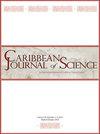利用DNA条形码识别波多黎各的海鲜欺诈
IF 0.5
4区 生物学
Q4 BIODIVERSITY CONSERVATION
引用次数: 0
摘要
摘要DNA条形码是一种强大的工具,当形态特征不可靠时,它可以有效地识别未知海鲜样本。此外,DNA条形码已被证明可用于识别非法贸易,如商业海鲜欺诈,该技术已取得进展,甚至可用于识别肉干、狗粮和化妆品等高度加工的产品。在波多黎各,一种名为“empanadillas de chapín”的当地流行油炸食品据称是用其他鱼类或肉制品代替传统的光滑卷鱼(Lactophrys triqueter)制成的,在西班牙语中被称为chapín。鲨鱼和鳐鱼通常作为当地美食出售;然而,目前尚不清楚哪些种类的鲨鱼或鳐鱼正在被吃掉。在这些未经证实的关于替代品和食用受保护鲨鱼物种的报道的推动下,我们试图通过DNA条形码来确定这种据称常见但未经核实的海鲜欺诈的普遍性。15种鱼类被确定为chapín的替代品,包括蓝鳃类和进口淡水物种。此外,这种分子法医技术还鉴定了九种在当地美食中作为鱼片出售的鲨鱼,其中大多数被消费者误认。即使在煮熟且无法辨认的情况下,也能识别出这些油炸肉和鲨鱼肉制品中的肉源。这项研究首次证明,波多黎各正在消费射线,并证实了当地美食中各种本地和进口鱼类正在取代木瓜蛋白酶的报道。本文章由计算机程序翻译,如有差异,请以英文原文为准。
Using DNA Barcoding to Identify Seafood Fraud in Puerto Rico
Abstract DNA barcoding is a powerful tool that can be effective for identifying unknown seafood samples when morphological characteristics are unreliable. Additionally, DNA barcoding has proven useful for identifying illegal trade such as commercial seafood fraud, and the technique has advanced such that it can be used to identify even highly processed products such as jerky, dog food, and cosmetics. In Puerto Rico, a popular local fried turnover called “empanadillas de chapín” are allegedly prepared using other fish or meat products as a substitute for the traditional smooth trunkfish (Lactophrys triqueter), known in Spanish as chapín. Sharks and rays are commonly sold for local cuisine; however, it is unknown which species of sharks or rays are being consumed. Driven by these unconfirmed reports of substitutions and the consumption of protected shark species, we sought to identify the prevalence of this allegedly common yet unverified type of seafood fraud, using DNA barcoding. Fifteen fish species were identified as substitutes for chapín including elasmobranchs and imported freshwater species. Furthermore, this molecular forensic technique also identified nine shark species sold as fillets in local cuisine, of which the majority were misidentified to the consumer. The meat source inside these fried turnovers and shark meat products could be identified even after it was cooked and visually unrecognizable. This study demonstrates, for the first time, that rays are being consumed in Puerto Rico, and confirms the report that a variety of native and imported fish are being substituted for chapín in the local cuisine.
求助全文
通过发布文献求助,成功后即可免费获取论文全文。
去求助
来源期刊

Caribbean Journal of Science
综合性期刊-生物多样性保护
CiteScore
1.00
自引率
25.00%
发文量
21
审稿时长
>12 weeks
期刊介绍:
The Caribbean Journal of Science publishes articles, research notes, and book reviews pertinent to natural science of the Caribbean region. The emphasis is on botany, zoology, ecology, conservation biology and management, geology, archaeology, and paleontology. The mission as a nonprofit scholarly journal is to publish quality, peer-reviewed papers and to make them widely available.
 求助内容:
求助内容: 应助结果提醒方式:
应助结果提醒方式:


